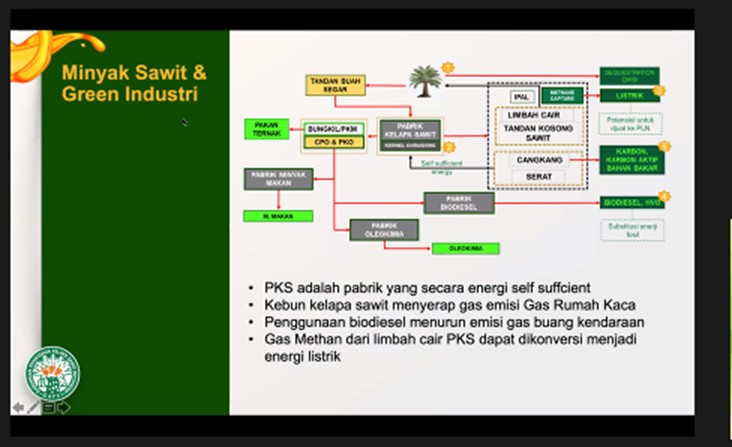Improving the Logistic System as a Solution for the Palm Oil Scarcity
By Adi Permana
Editor Adi Permana

BANDUNG, itb.ac.id – As a response to a problem that is increasingly causing ire in our society, the scarcity of palm oil, The Task Force for Regional Economic Recovery (PED) held a webinar titled "Collaboration and Integration of Palm Oil Supply Chain" which invited experts representing various classes of the society.
This issue becomes more important and urgent considering it coincides with the government efforts to recover and transform the regional economy during the COVID-19 pandemic, in relation to improving the commodity supply chain in West Java.
The speakers that were present during the "Collaboration and Integration of Palm Oil Supply Chain" are:
- Dr. Eng Nur Budi Mulyono as the Leader of Norhed Team from SBM ITB,
- Prof. Togar M. Simatupang as a SBM ITB Professor,
- Setiawan Wangsaatmaja as West Java Provincial Secretary,
- Ipong Witono as the Chief on Duty of the West Java Regional Economic Recovery and Transformation Committee (KPED),
- Oke Nurwan as the Directorate General of Domestic Trade, Ministry of Trade RI,
- Aldo Winaya as West Java PTT KPED/SCC Division,
- Prof. Ina Winaya as Faculty of Economic UNPAD Professor,
- Yusmar Anggadinata as the Main Director of LAPI ITB,
- Isy Karim as the Director of Basic Needs Goods and Important Goods, Ministry of Trade RI,
- Yudi Hartanto as the Head of West Java Aprindo DPD,
- Andre Manuhutu as the VP of Trade and Manufacture of PT RNI
After the webinar was opened by Ipong Witono as the Chief on Duty of the West Java Regional Economic Recovery and Setiawan Wangsaatmaja as West Java Provincial Secretary, the discussion session was moderated by Nur Budi from SBM ITB. The panelists that were present are Andre Manuhutu representing PT RNI, Yudi Hartanto representing Aprindo West Java, Yusmar Anggaditana as the Main Director of LAPI ITB, and Togar Simatupang as the SBM ITB academician.
The four panelists were invited to provide an overview of the situations on the field and to discuss some possible opportunities in handling this situation. The session began with presentations from the four panelists, which resulted in a conclusion that the scarcity of this particular consumer goods can be resolved by collaboration between the government, business actors, academics, and the community.
"The option is clear, repair the current regulation, establish a digital integration service system, intensify the distribution from the assigned path such as SOEs to solve this problem," said Togar Simatupang in his presentation.
The discussion session gave an indication that the government needs to be more serious in addressing this issue and not limit their effort to deal with this short-term crisis, but also revamp the palm oil logistic system in the long term. A task force team needs to be assembled with the authority to ensure that the flow of material and technology supply from upstream to downstream can be done effectively. The highest retail prices should be based on a controlled supply system to ensure the stability of supply flow to consumers without harming the distributors.
Naturally, there is an emergency stage for the critical points and a transition stage for the production and the distribution of government-priced retail goods. If necessary, the government can buy back the goods, which were hastily bought by the trader, at their old price to avoid hoarding.
The session then ended with a Q&A session on the aspirations of both the community as consumers and small-business actors who were also affected by the problem of palm oil scarcity. "CPO as energy is indeed important, but CPO as a consumer good should be prioritized," ended Togar Simatupang.
Source: SBM ITB Publication
Translator: Favian Aldilla R (Civil Engineering, 2019)

.jpg)
.jpg)
.jpg)
.jpg)
.jpg)


